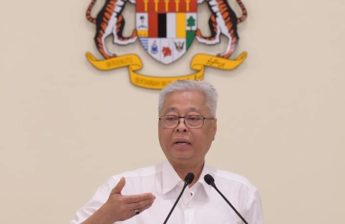KUALA LUMPUR, May 22 — Bandar Kuching MP Dr Kelvin Yii Lee Wuen has proposed an increase in the budget for hospital-based psychiatric services to 2.4 per cent of the next national health budget (Budget 2024), following the decriminalisation of suicide in Malaysia.
Dr Yii, who serves as the special advisor to the Minister of Health, made the suggestion in his debate supporting the Penal Code (Amendment) (No.2) Bill 2023 in the Dewan Rakyat today.
Dr Yii argued that criminalising suicide not only fails to deter people from committing suicide but also has negative societal effects, as it perpetuates the stigma surrounding suicide, prevents at-risk individuals from getting the help they need, and wastes judicial resources.
He also said that the criminalisation of attempted suicide overlooks the underlying mental health challenges, such as mental resilience and social economic factors that contribute to individuals contemplating to end their lives.
“Factual scientific statistics are very clear. It (decriminalisation) does not show a significant increase in suicide cases but it increases access for those that need help.
“So, the criminalisation of suicide does not save lives and does not act as a deterrent. Instead, [it] gives a negative effect, sustains stigma and also does not encourage at-risk individuals to get help during a crisis.
“Additionally, this criminalisation of suicide does not deal with the core issues that is mental health resilience or the social economic situation of the patient which prompts the patient to try and kill themselves.
“We need to increase the budget for hospital-based psychiatric services to 2.4 per cent of the national health budget in the upcoming budget,” said Dr Yii.
Subsequently, the former chairman of the parliamentary select committee (PSC) on health, science and innovation added that Malaysia also needs to amend the relevant clinical guidelines to ensure that psychotherapy is the first line of treatment that is executed alongside pharmacotherapy, medical treatment by means of drugs, for patients.
“We need to amend the relevant clinical guidelines to ensure psychotherapy is introduced as the first line of treatment with pharmacotherapy.
“Thirdly, develop guidelines and [an] empathy model to train first responders to handle people with mental health issues.”
Dr Yii further recommends that Malaysia strengthen its mental health surveillance system by establishing a comprehensive database system that tracks various mental health disorders, including suicide, depression, anxiety disorders, and schizophrenia.
This database would consolidate data from government agencies and non-governmental organisations (NGOs), ensuring a unified approach to monitoring and addressing mental health issues.
“We need to strengthen the mental health surveillance system. This is [the] surveillance and monitoring of mental health disorders such as suicide, depression, anxiety disorders and schizophrenia [that] need to be strengthened via the development of a database system to collect and compile data from all government agencies and also relevant NGOs and databases. This includes the National Suicide Registry, the National Mental Health Registry, the National Registry of Deliberate Self-Harm, and we also need to develop and operate System IT Mentari or MIT2.
“We need to ensure [we have an] evidenced-based policy and practice based on science. Through research development, we need to identify and carry out research on the main concerns of mental health. For example, addiction, stress, work pressure, [and] perinatal population and also focus on the translation of research in a language, on ensuring the availability and accessibility of comprehensive and quality mental health services,” said Dr Yii.
Dr Yii also said the country also needs to create an integrated service of care through the recognition of mental health issues and meet the mental health needs in specific populations, such as patients facing chronic medical illnesses, women and children, the elderly, ethnic minorities, orang asli, immigrants, prisoners, and people with disabilities.
While the country needs to increase access to appropriate care for individuals having suicide ideations, the postvention for suicide victims also needs to exist.
“Increase access to appropriate care pathways for individuals in suicidal crisis. Creating postvention pathways for suicide victims, including those with close family members, friends, [to] encourage responsible media reporting of suicide, [and] creating an environment that is safer for suicide prevention.”
Postvention is the support conducted after the loss of a loved one to suicide. It includes counselling (which includes suicide-specific counselling), support groups, support from family and friends and many other services.
Recognising the above as short-term measures the country can implement, Dr Yii proposes the establishment of a multi-ministerial and multi-sector mechanism dedicated to mental health. Additionally, Dr Yii recommends a systematic increase in the number of mental health professionals per capita, and improving the placement of health care workers to deal with urban and rural disparities for the country’s long-term goals.
The Bandar Kuching MP, supporting the amendment to the Penal Code, said that efforts to decriminalise suicide is not something new and has been done in more than 60 countries including Singapore, the United Kingdom, India, and New Zealand.
Dr Yii also drew attention to the many Malaysians who had lost their lives during the Covid-19 pandemic due to unemployment, isolation and the difficulty in getting mental health aid to highlight the need to amend existing legislation.
“The Covid-19 pandemic has worsened the situation to where many that face unemployment, isolation and difficulty in getting mental health help because of various movement control orders that have restricted their movements.
“Even there, due to that, the psychiatric appointments have been delayed up to three to six months. So, the current law is very harmful, and it even worsens this problem because it encourages the individual to choose the worse way to ensure that they complete the suicide and because of that, we lose a very precious life.”








